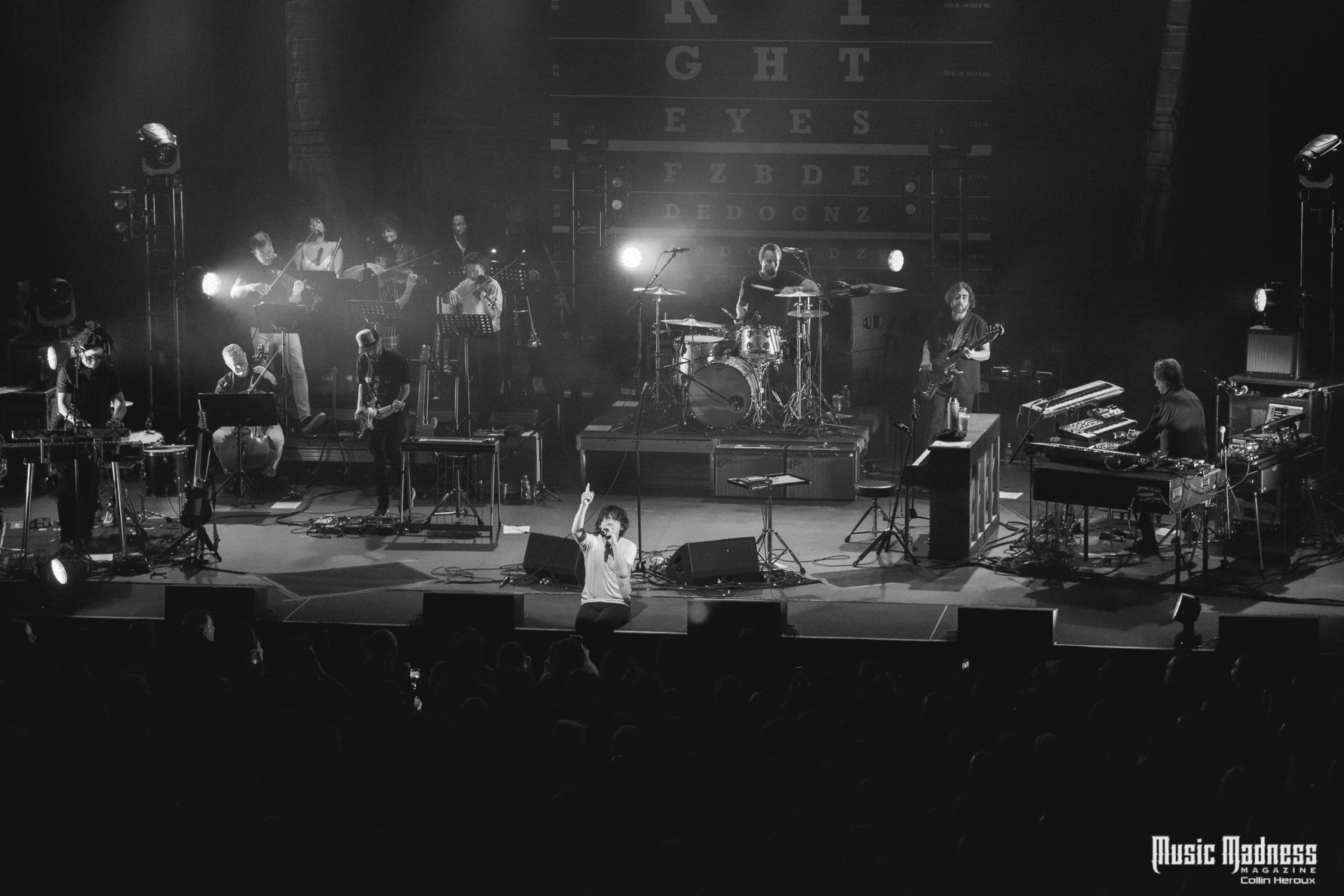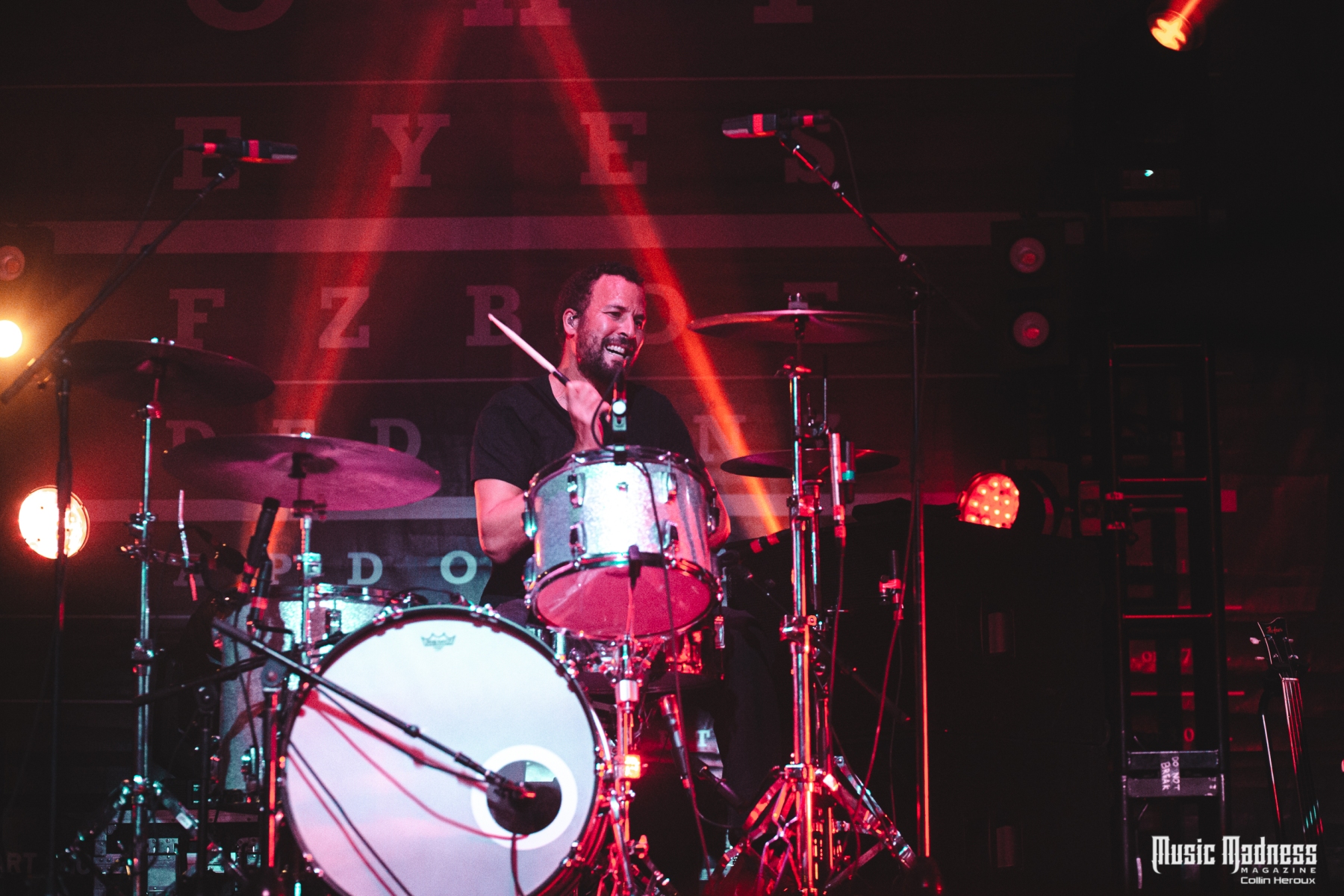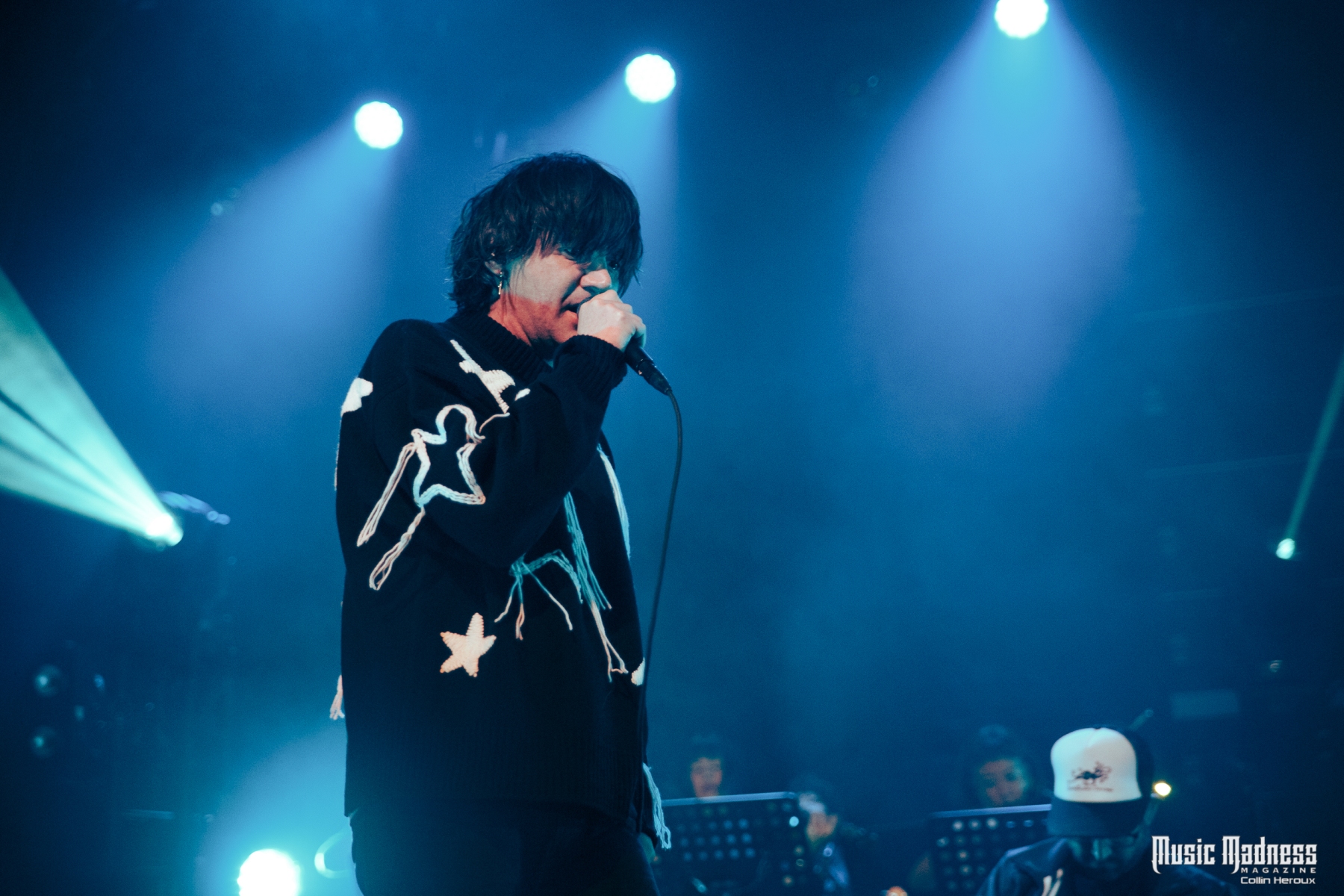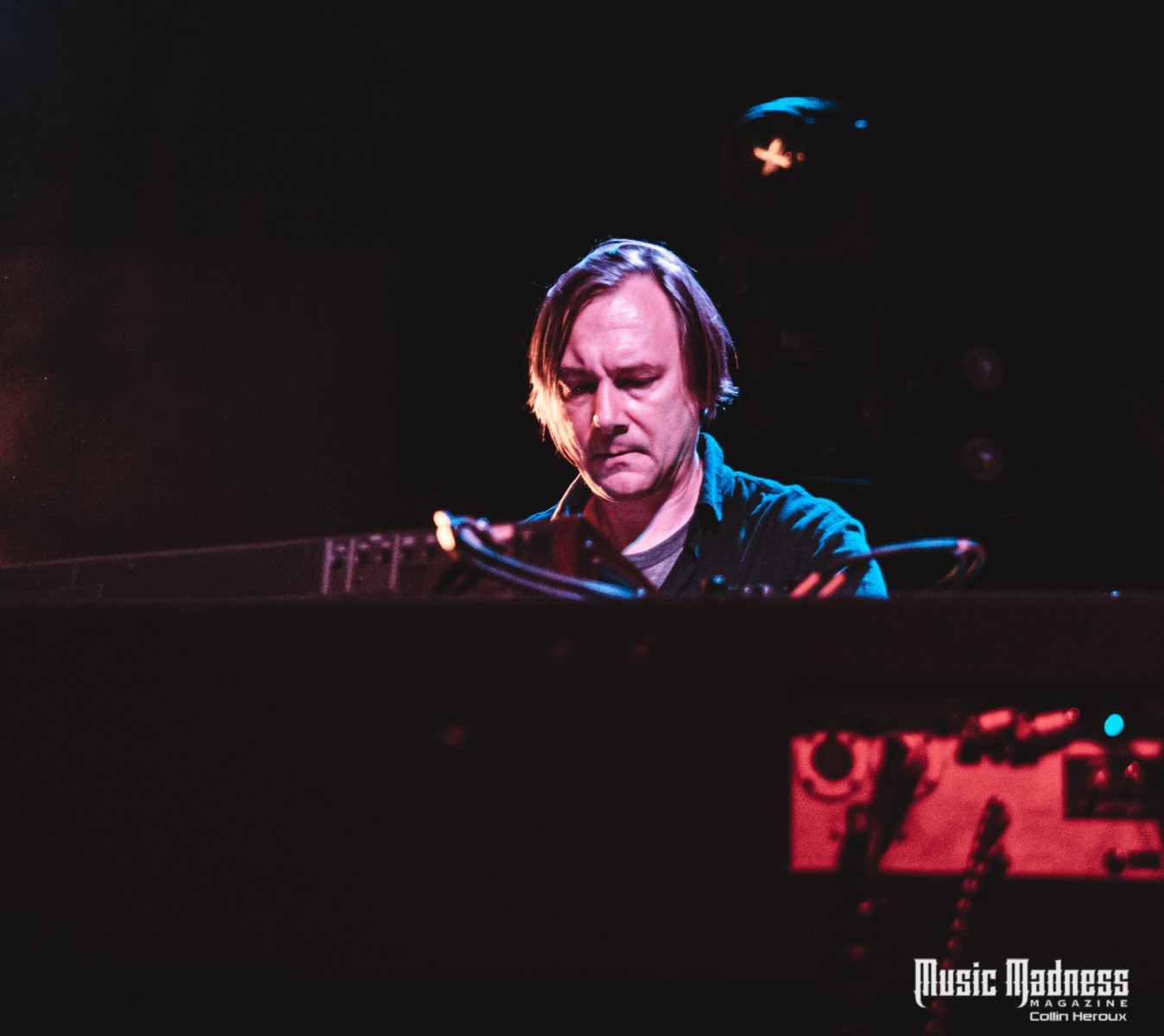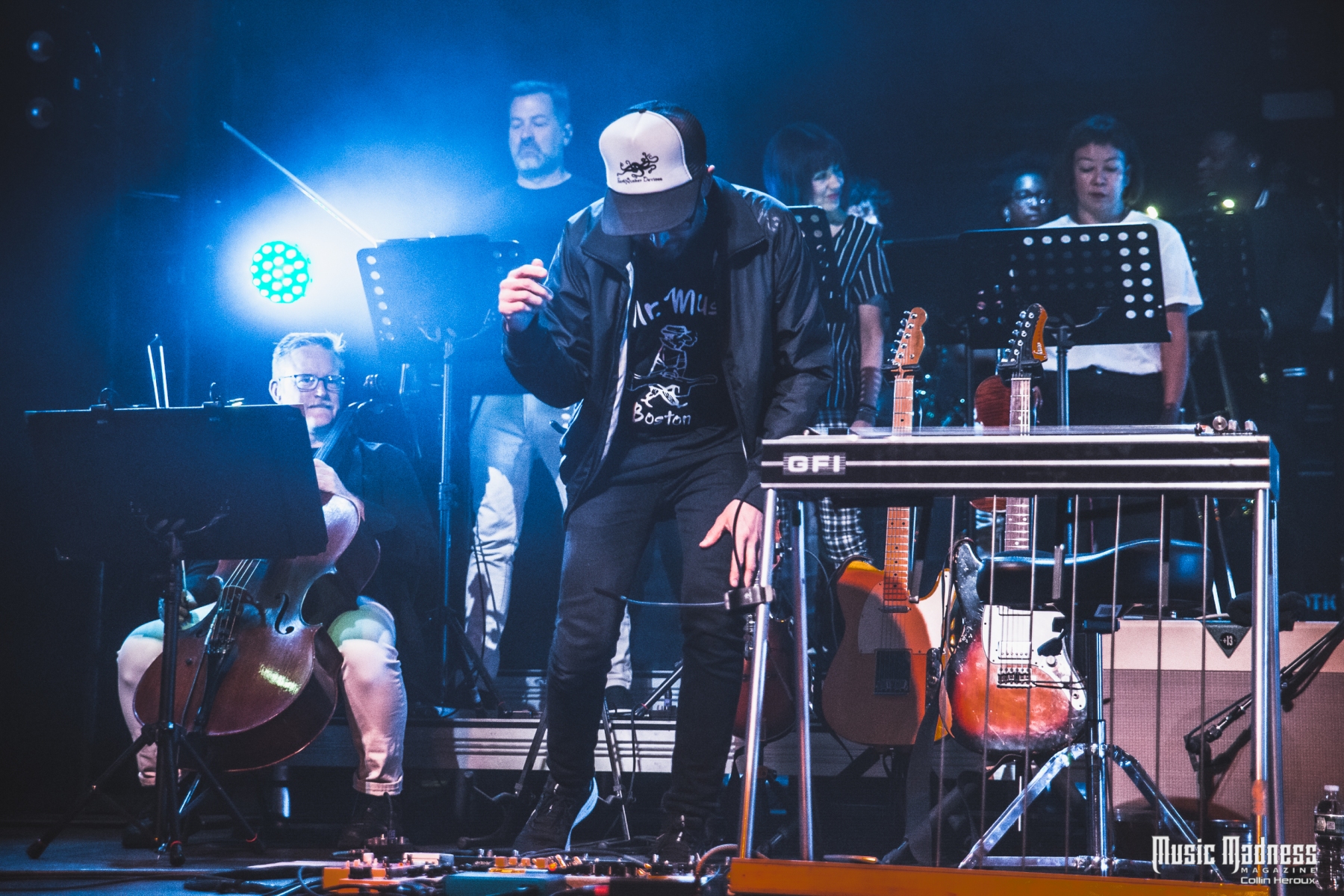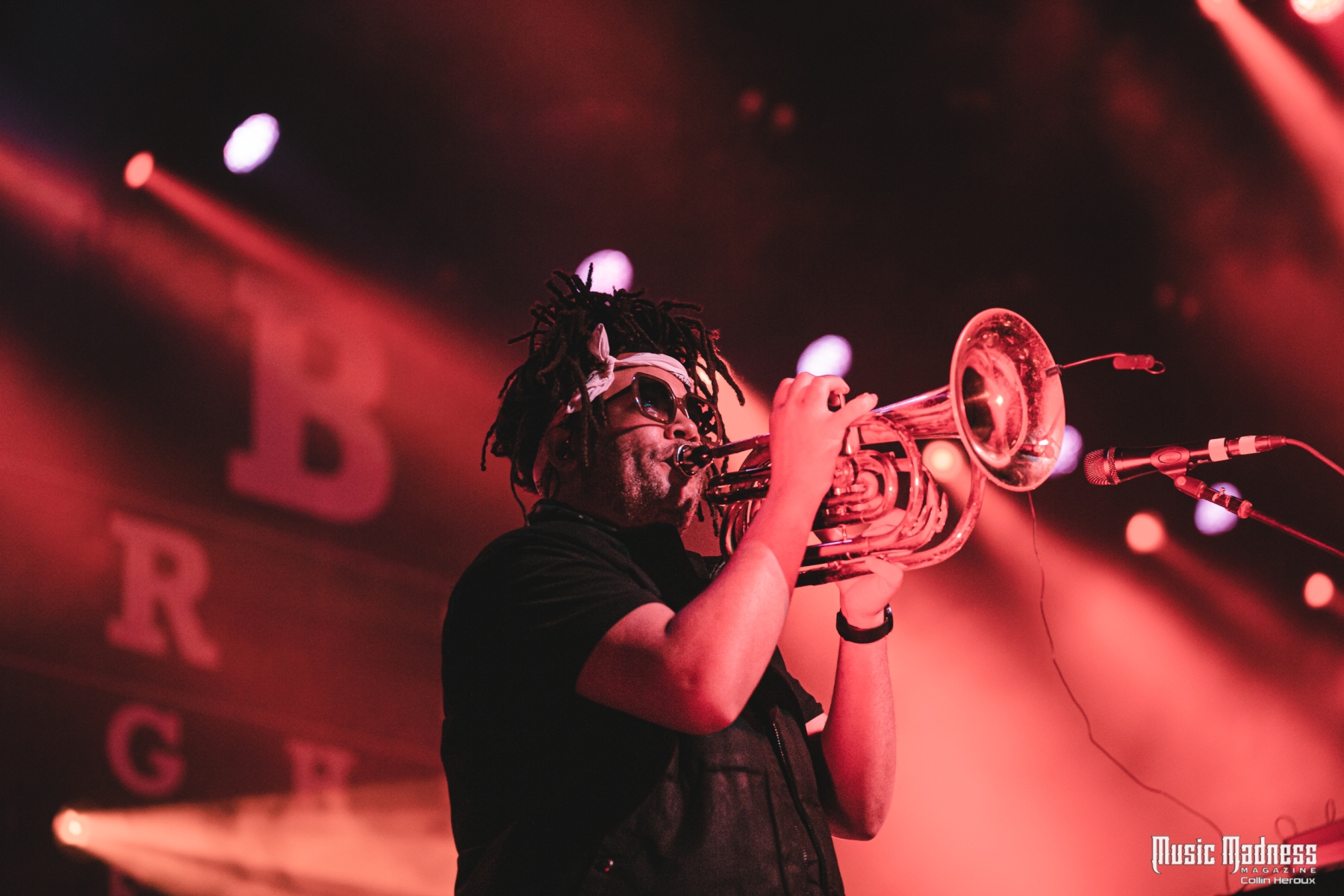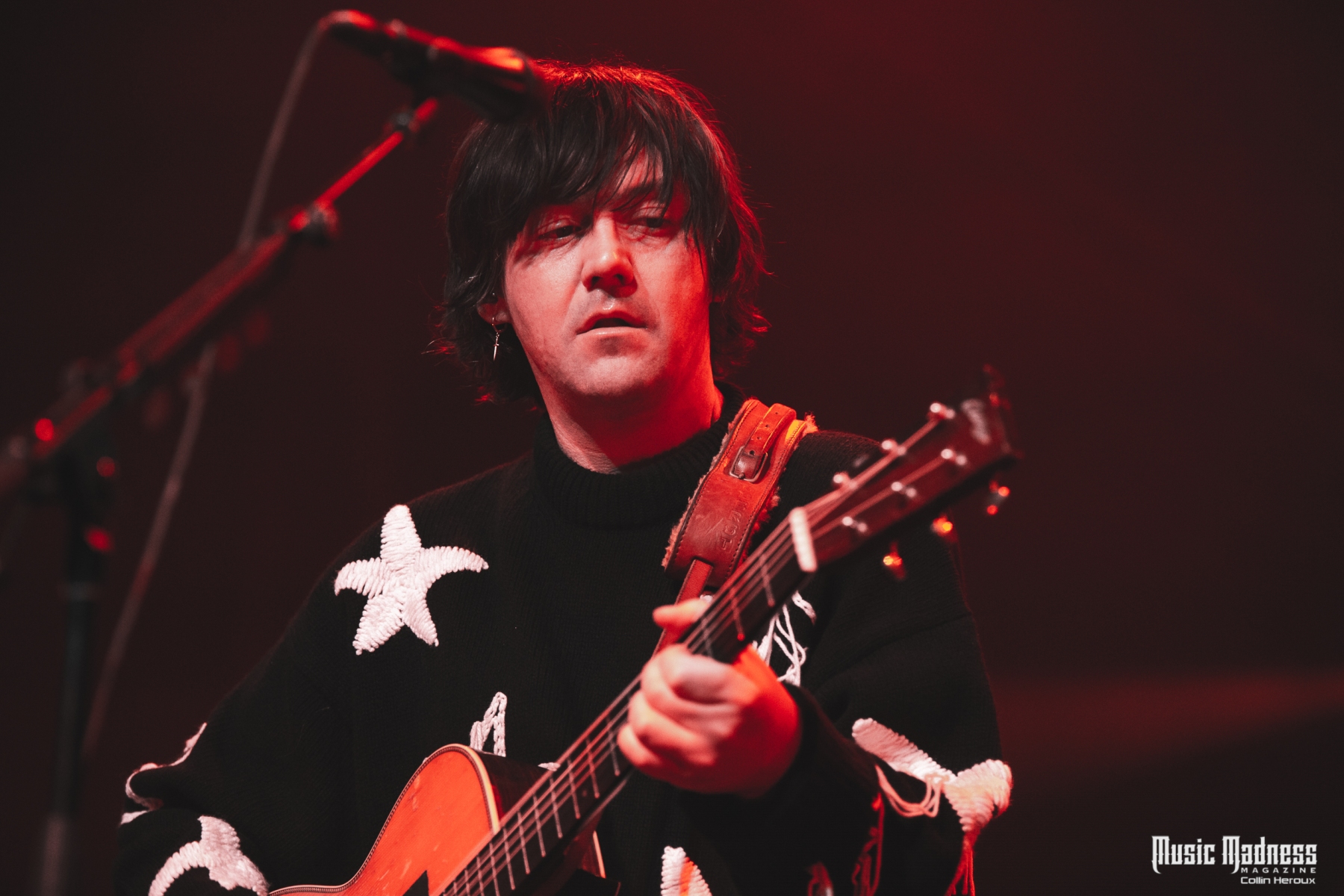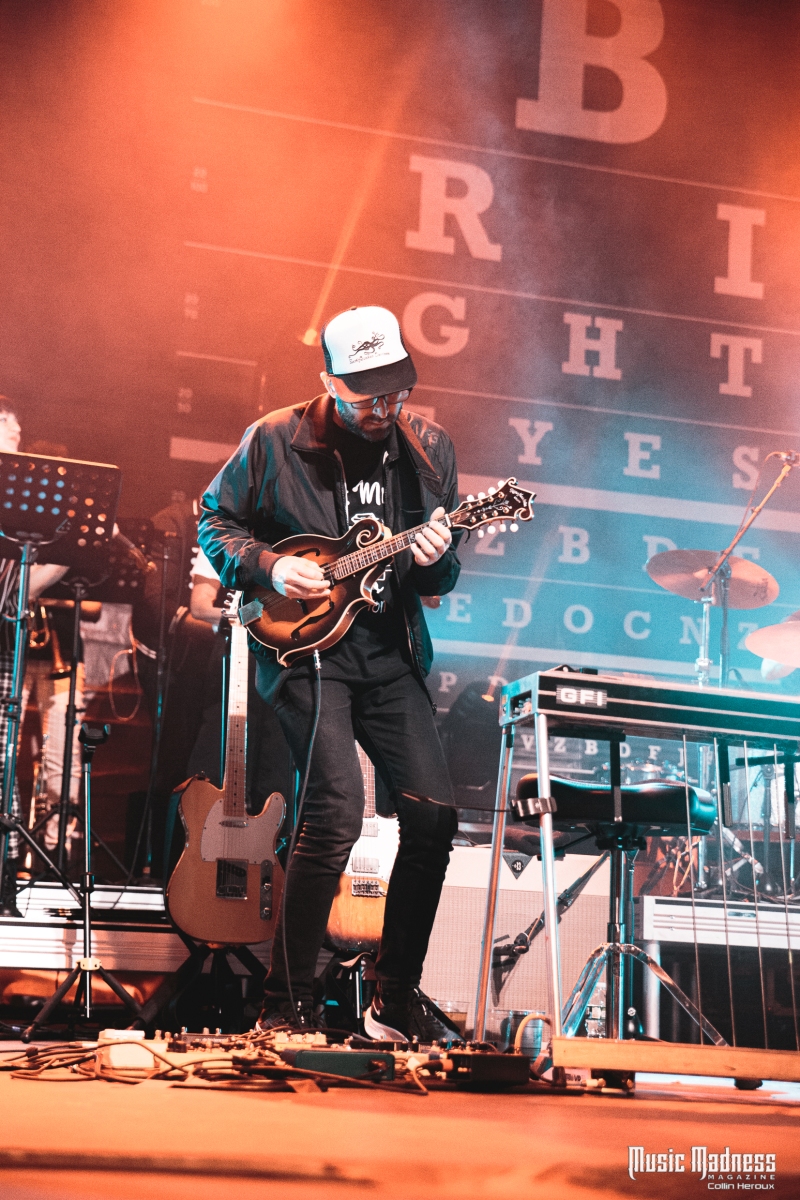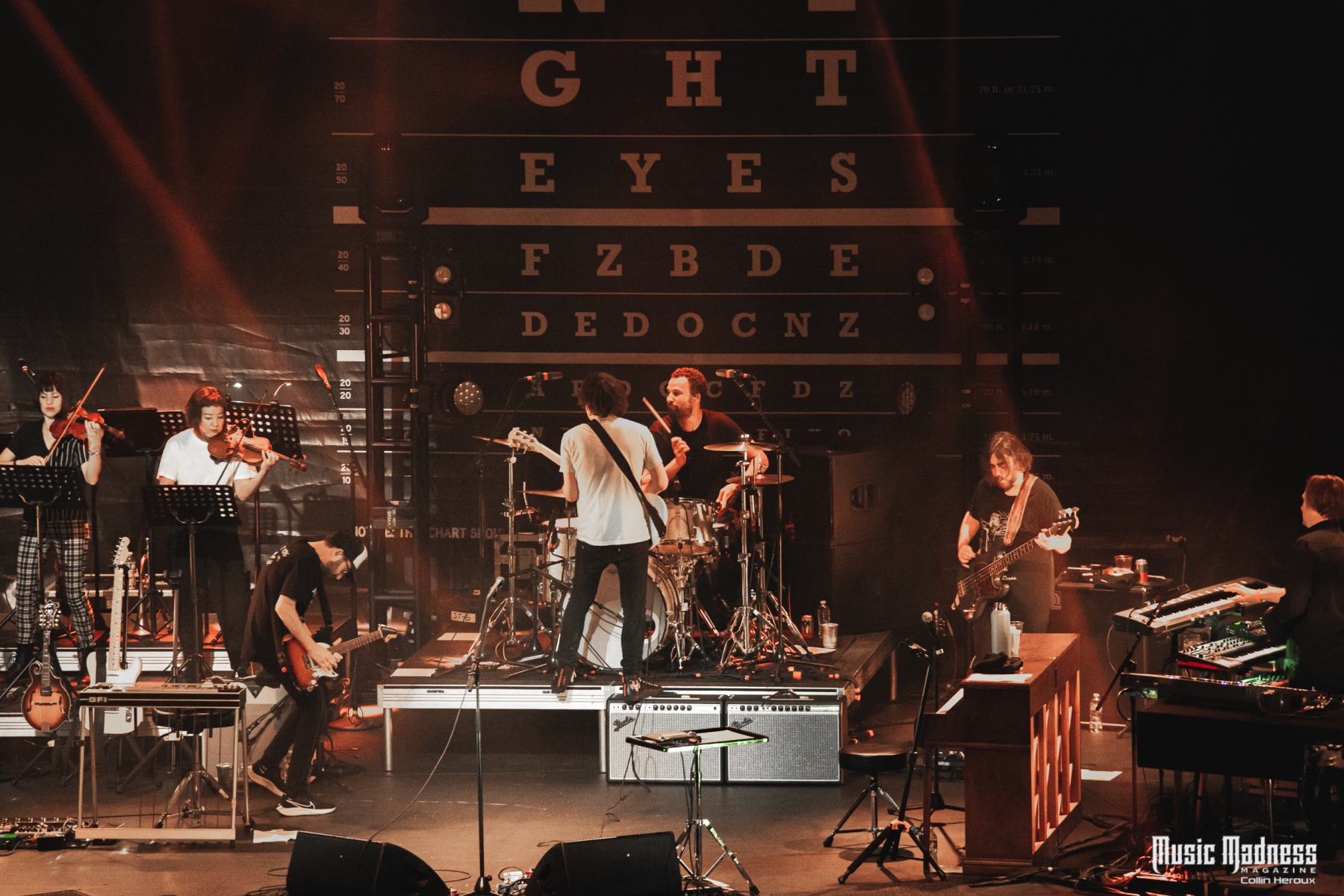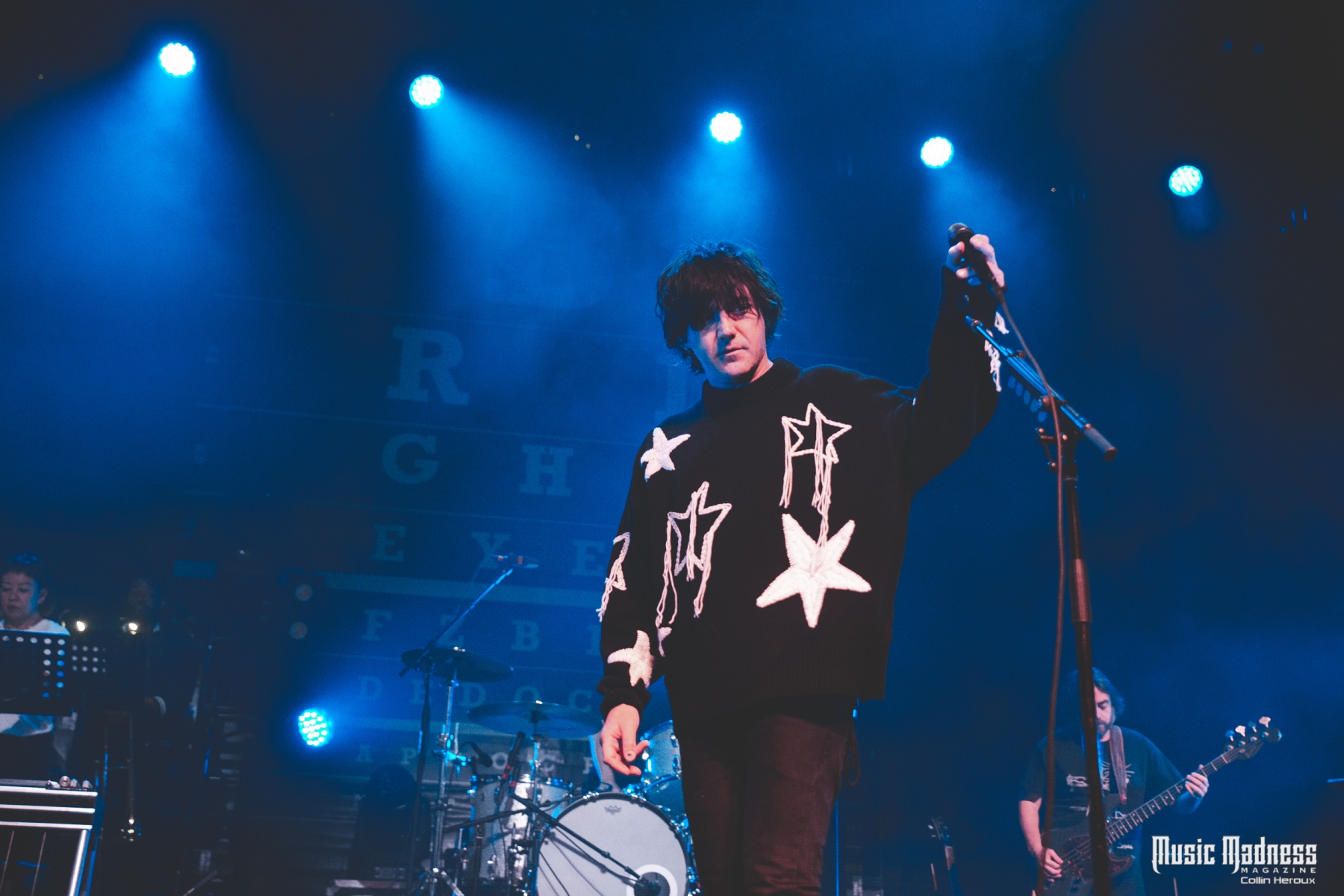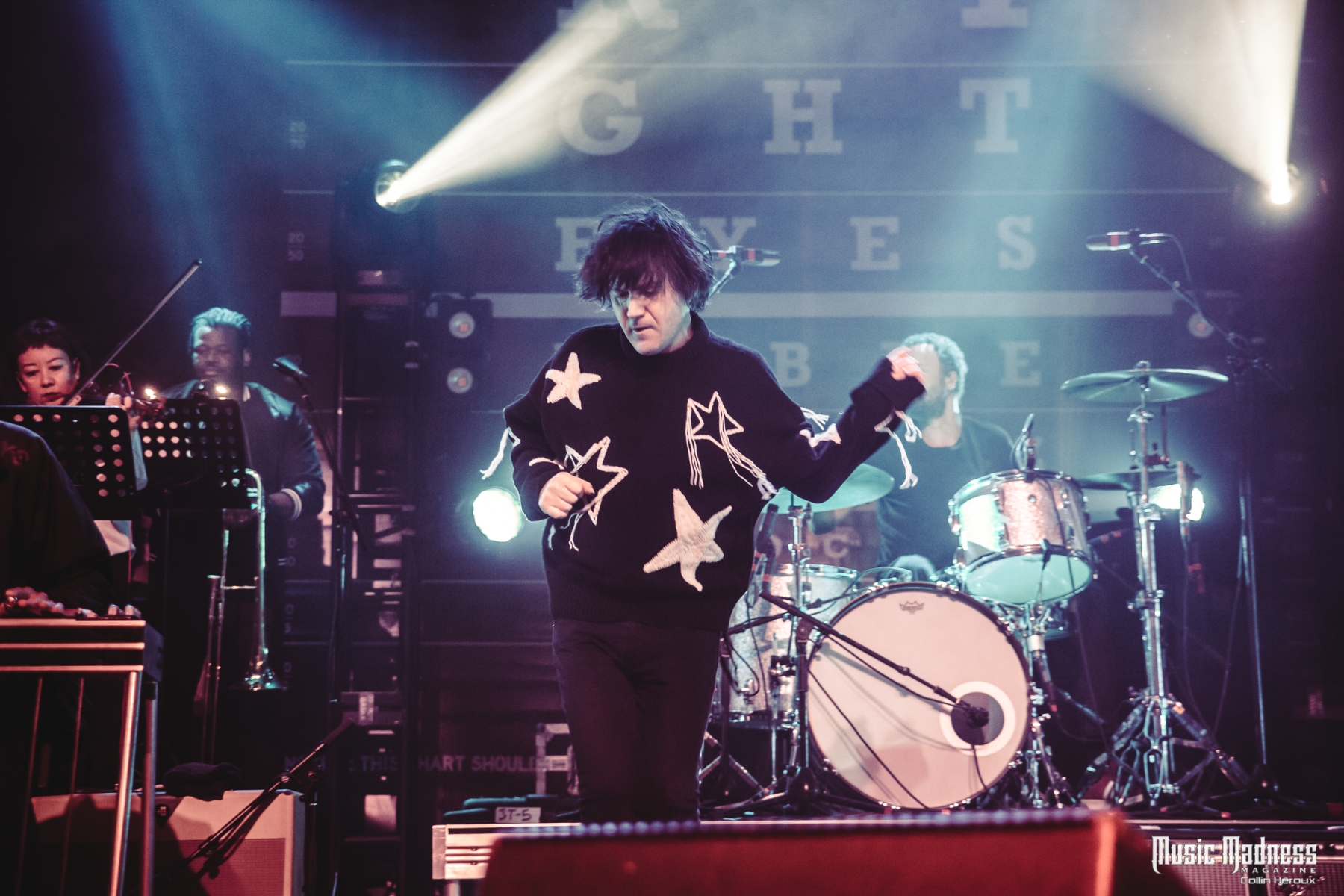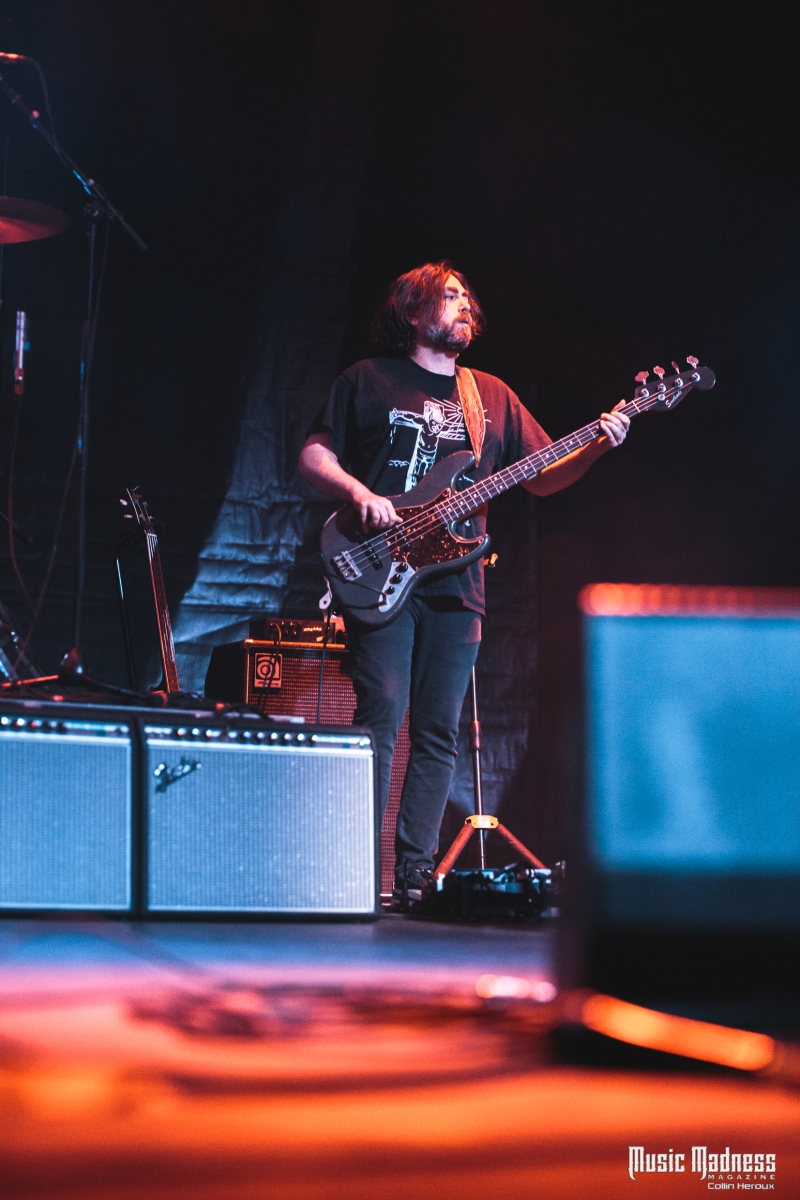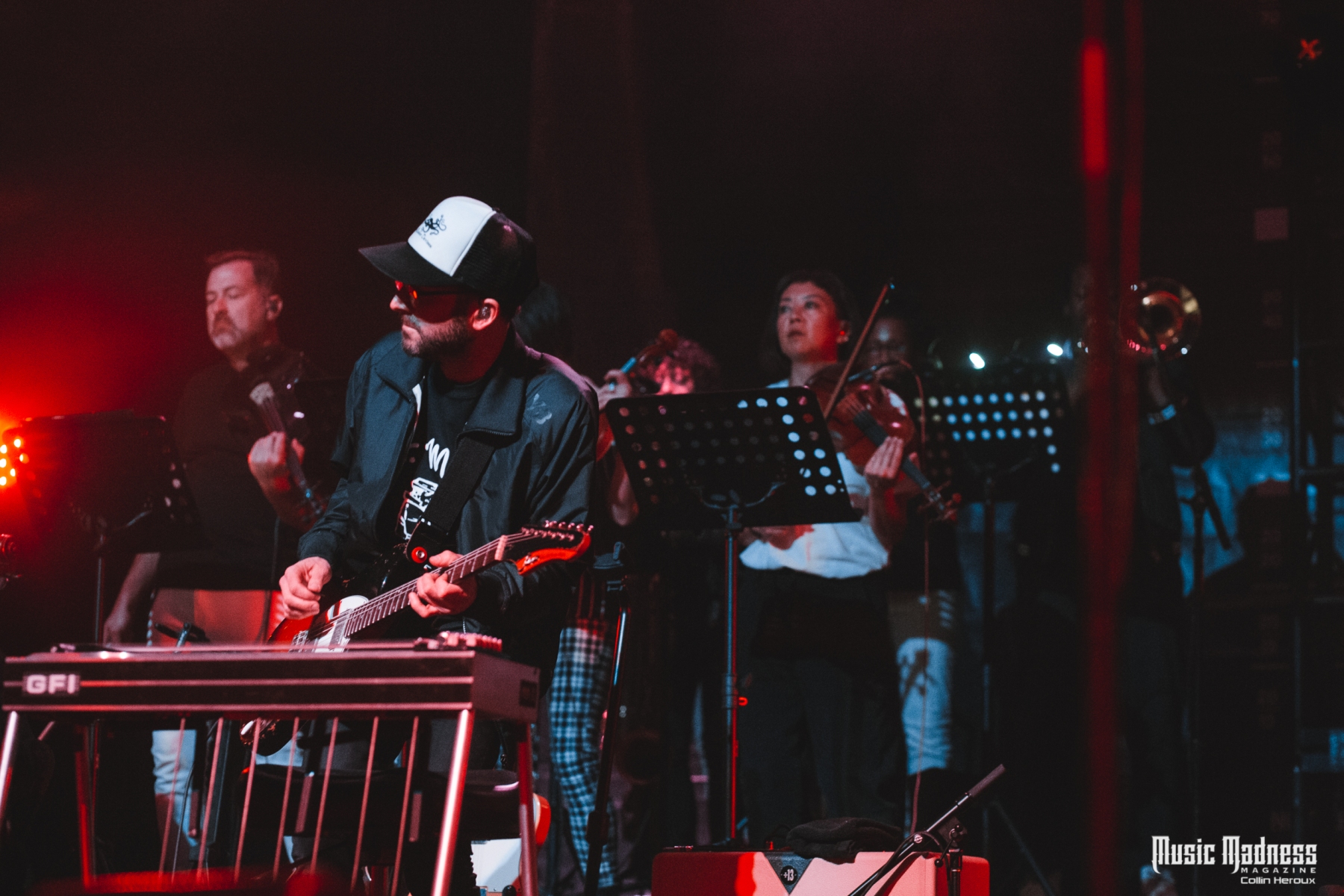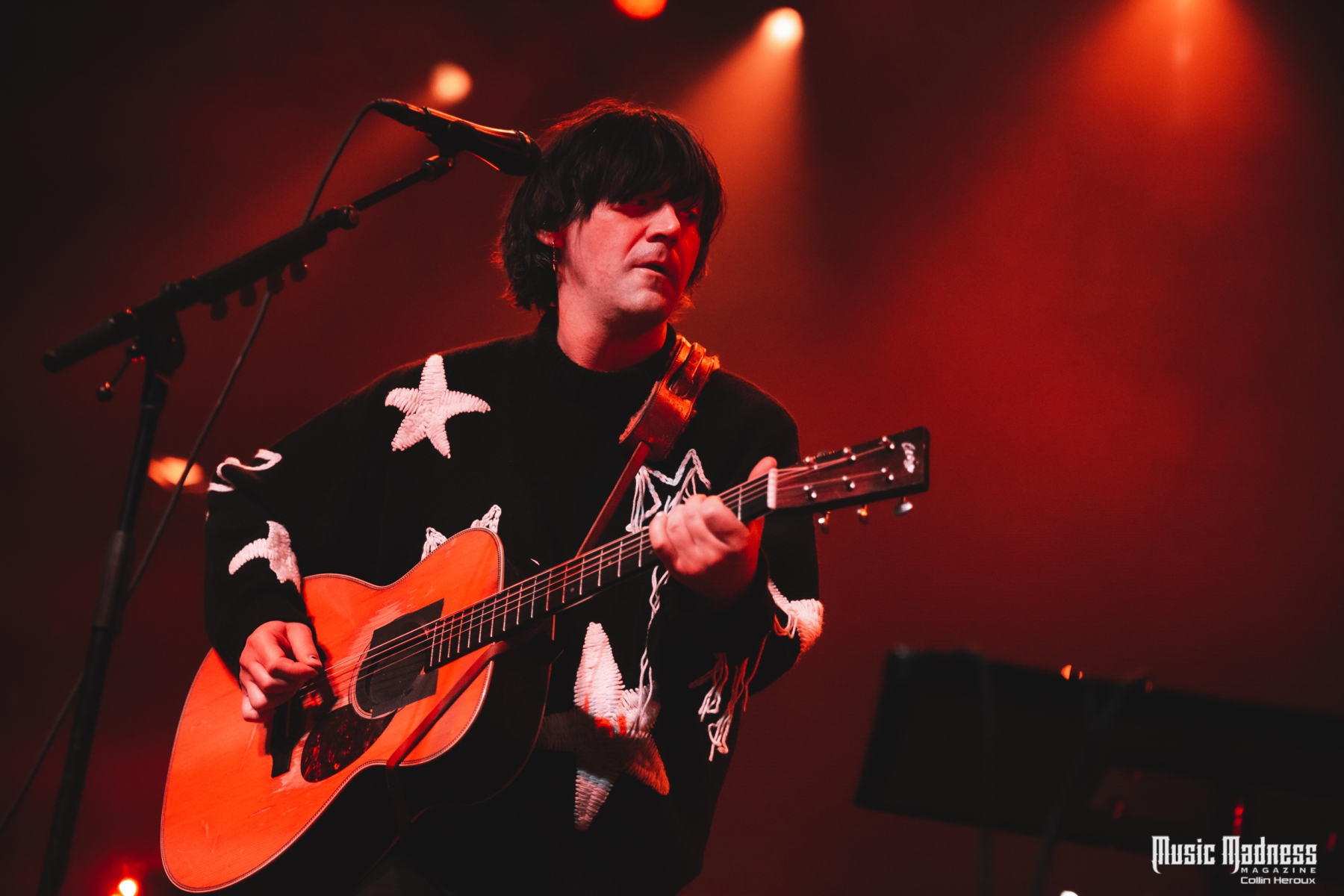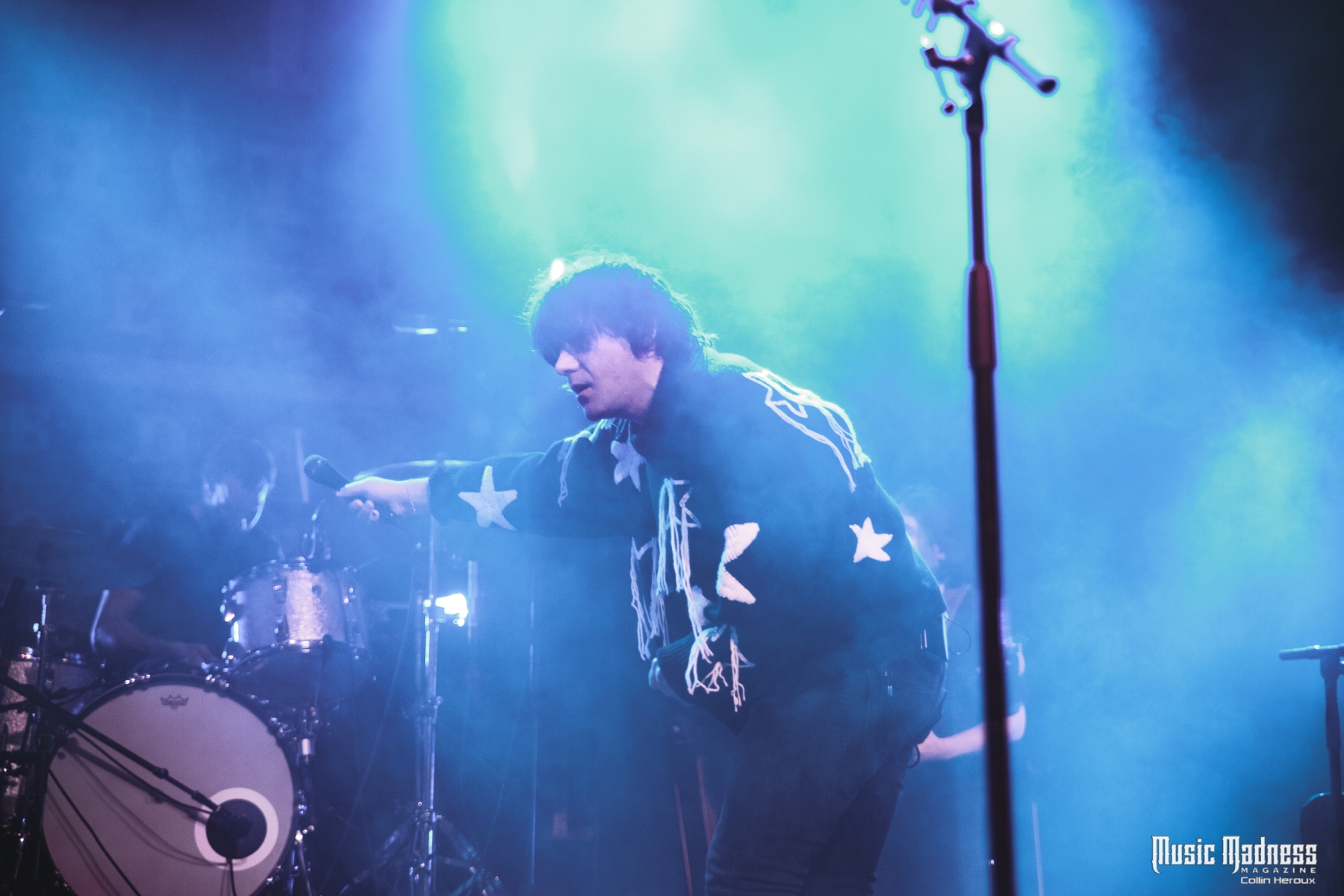
Bright Eyes got in a handful of lucky shows during the summer of 2021, one of which we were equally fortunate to cover here; but a full tour of their latest record, Down in the Weeds, Where the World Once Was still eluded them amid ever-changing circumstances. But it’s a new year, a new tour, and even a new venue – Boston’s pristine Roadrunner – that welcomes them as they head out on the road to tour the album proper.
With them comes Christian Lee Hutson, fresh off the release of his latest album, Quitters, and part of what might be called the Better Oblivion Community Center Extended Universe, as that band, a collaboration between Bright Eyes’ Conor Oberst and Phoebe Bridgers, has formed an unprecedented collaborative community around it, merging one generation of somber folk fans into another. It’s become rare to see any one of them release a record or tour without a host of the others helping out: Hutson toured as part of BOCC; the credits of Quitters are almost exclusively members of Bright Eyes and Bridgers’ touring band, and you can hear Hutson’s playing all over Punisher.
Hutson is a perfect choice to open the evening, and he recounts to the audience how he’d sit out in gym class and listen to Bright Eyes records on a little iPod, glad he didn’t have to wear gym shorts. His music today calls back a bit to the earlier Bright Eyes records in how they tend towards minimalism in sound but still can drive a pang of sadness straight to the heart. In ‘Strawberry Lemonade’ he posits, “Pain is a way you can move through time / visit people who are gone in your mind / smooth over every wrinkle you find / the truth can’t hurt you if you know it’s a lie”, delivering the line in a gentle, composed voice that initially cloaks how devastating the sentiment is.
In contrast to Hudson’s tripartite band, Bright Eyes have of late taken to a much bigger sound, bringing their older material along to match. The band has six members spanning the front of the stage, and a crew of at least that many more between backing vocals, strings, and brass. They all play in front of a floor-to-ceiling mock eye chart made to spell out “Bright Eyes,” and there’s a little nod to label Dead Oceans tucked in there as well. The label and band recently just announced a series of reissues of their first nine albums, and interestingly they’ve elected to pair each with an EP of re-recordings featuring covers and guest musicians. One of the most recent dispatches from that series was a rendition of “St. Ides Heaven” by Elliott Smith, a figure who looms large in the writing of Oberst, Bridgers, and so many of their contemporaries.
Oberst takes the stage in a black sweater adorned with white stars, shaggy black hair falling down practically over his eyes, but not quite. During the opener ‘Dance and Sing’ he does exactly that, pirouetting in front of Jon Theodore on the drums during the song’s instrumental breaks. The song sits early on the record, and it finds Oberst seemingly giving himself up to the flow of time and resolving to keep on going in the face of reality. It’s not exactly a zen perspective – he describes himself as being on a firing line – but it is a kind of commitment to continuation, as uncomfortable as that may often be.
While the setlist for the evening bears some resemblance to the ones of last summer, the differences are just as interesting, and notably, there’s a great deal more material brought out from Down in the Weeds. The album, something of a comeback record, found Oberst with quite a lot to say, pondering the scale of the world and the inevitable sacrifices one endures to continue on (‘Mariana Trench’), as well as the severity of the degree to which we all either succeed or fail. “They’ll blow up or walk on the moon,” he says of humanity in ‘Just Once in the World’, allowing for the possibility of success but definitely feeling the heft of all the things he’s been through. Even the melodica played during ‘Persona Non-Grata’ carries as much baggage as that inherently toy-like instrument possibly could. ‘Tilt-A-Whirl’ is perhaps the ultimate embodiment of this line of thinking, where Oberst narrates himself experiencing dreams or visions of his late brother, and dealing with watching his mother aging. It comes to a beautiful crescendo, but all that splendor goes in service of describing life as a truly isolating experience that can end senselessly in only a moment.
Oberst has never been a stranger to these weighty terms and morbid ruminations: “if I die tonight, then I guess I die tonight” he mused on the very first Bright Eyes record, and that song, ‘Falling Out of Love at This Volume’ is one that the band has revamped for the reissue companions. It’s become a fuzzed-out rocker anchored by guitarist Mike Mogis that, a quarter-century on, makes the lyric about “turn[ing] the amps way up” quite literal. Even the fuzzy distortion which connects the two renditions has grown more purposeful and well-rounded in the interim, and between that and the synths Nate Wolcott brings in at the conclusion, it almost sounds inspired by New Order, of all things; and the madcap strings of ‘Jejune Stars’ likewise have ascended to the grandiose scale of Morricone.
Alongside his myriad existential quandaries, another thread that winds through the record is the dissolution of Oberst’s marriage, which occurred when Bright Eyes was on hiatus. Before the end of the set, he speaks to the audience a little bit about ‘Comet Song’, which has been a constant since the band began touring again at the conclusion of the evening. He says the song is about “true love”, and dedicates it to his ex-wife before they start to play. It’s fitting that he goes back to a celestial body in this song, as he used a walk on the moon as a metaphor for success earlier on. A moonwalk or an explosion; a new life or an “apocalypse” somewhere ahead; a future of hope or a finite conclusion. This is Oberst internalizing that life contains all of these things, and sometimes things turn out to be the latter option of all these cases.
The night comes with an emotionally charged encore, no point more so than in ‘First Day of My Life’, for which the band brings on a flautist. The flute and Mogis’ guitar sing in their highest registers and carry the song to its conclusion, and one can’t help but marvel how the lyrics give exact voice to the feeling of falling in love. It’s the polar opposite of ‘Comet Song’ in a way, a look at what happens on the other side of the coin-toss of life – though how long it may last is fated to remain a mystery. Bright Eyes may have a reputation for being sad music, and that’s understandable – is there anything sadder than the lap steel that calls out during ‘Poison Oak’, for example? But songs like ‘First Day of My Life’ prove that Oberst is equally lyrically deft at drawing out the truth at the antipode of the emotional spectrum, and as the years have passed he’s traversed a great deal of the space in between, culminating, thus far, ‘Down in the Weeds’ – but who’s to say where there may still yet be to go?
Review and photos by Collin Heroux

